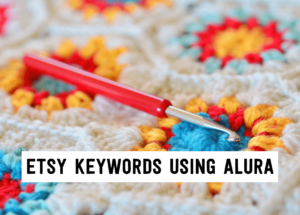
How to find the best Etsy keywords in 3 simple steps using Alura
If you want to be found in search results on Etsy, you need to optimize your product listing for SEO. And if you want to
join
A question that I hear quite often in the handmade world is:
“Do I need my own website? Or is Etsy enough?”
This is a very valid question to ask. Of course, there is no one-size-fits-all answer — what’s right for one person may not be right for another.
But there are definitely some significant differences that each choice brings into play, that you need to be aware of in order to make the right decision for your handmade business.
And today we’re going to dive into those differences, and talk about how having your own website lets you grow your business in ways you can’t replicate on Etsy.
So, ready? Let’s dive in.
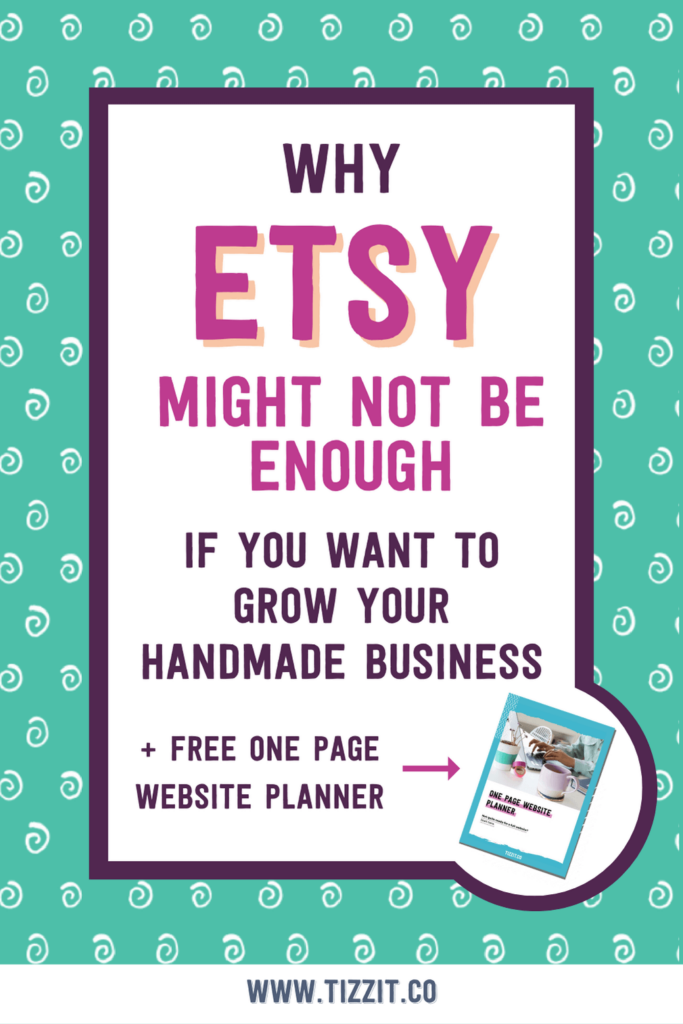
There are four main ways you can start selling online as a business:
And something you will hear me say quite frequently is that there are advantages that having your own website offers that you just can’t get on Etsy.
If you’re serious about growing this business into something that provides a good portion of your income – or a full-time income – then I do think that having a website (only or as well as Etsy) is something that you need or will need at some point on your journey.
It doesn’t mean that you can’t be on other platforms. I love Etsy, for example, as well. But I do think that a website has to be part of this plan at some point — so let’s talk about 9 reasons why I think that’s the case:
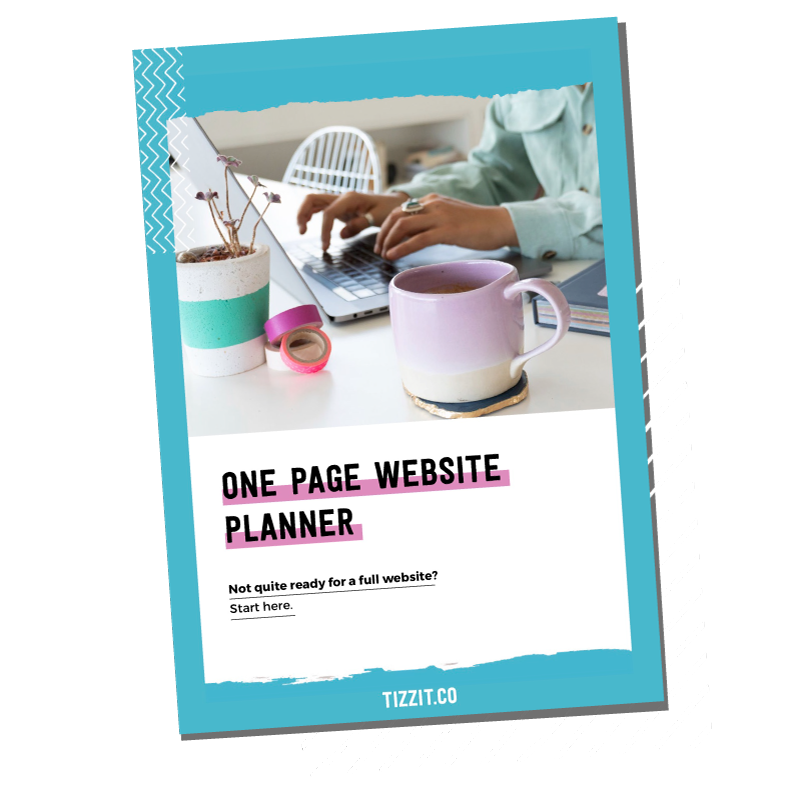
This free website planner will help you create a simple yet professional one-page website for your handmade shop.
The first advantage that having your own website provides is better branding.
Yes, you can have a banner on Etsy and a profile picture and try to make it look like your own shop. Only… just kinda. It just doesn’t compare to what you could do with your own website.
Etsy is Etsy, it looks like Etsy no matter what your shop banner is, and all the Etsy shops look exactly the same. Branding is about differentiating yourself from the crowd, telling your story. Unfortunately, it is not a possibility on Etsy.
Here is a case in point: how many times have you heard conversations like this?
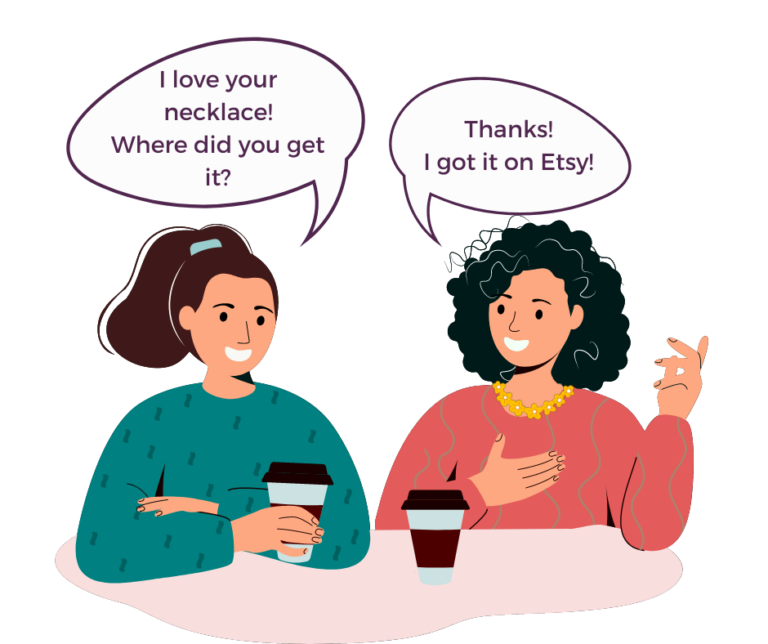
UGH, right? You worked so hard and you made this product that is so eye-catching and beautiful that people are commenting on it and asking where it came from, and you aren’t getting the credit – or a referral!
The name of your shop was not remembered by your customer and isn’t passed along to their friends. Ultimately, you are seen as an “Etsy seller” and your products are “Etsy products.”
When you sell off a marketplace-type site like Etsy, it makes it very, very hard for people to remember who you are and how to effectively find you. What are the chances that this person is going to go on Etsy, type in “necklace” and scroll through ALL the search results pages until they find you?
Sadly, the chances are slim to none. There is a much better chance they will end up finding a necklace in another Etsy shop while browsing away… Which would suck.
Another big advantage of having your own website is the autonomy and control that you gain over your handmade business.
When you sell on Etsy, Etsy makes a lot of important decisions for you. They decide how your product pages are laid out and what payout you receive, they control the algorithm for who sees your products . . . and Etsy can ultimately make whatever change they want to your store without needing your consent. And that’s fine because that’s the deal. You are renting a space on their marketplace. They make selling your handmade products easy and put your store in front of all their visitors.
But it comes at a price, and that price is that you don’t own that space. They can change their fees, their SEO algorithm, or even close your shop without notice.
Having your own website guarantees that whatever happens on Etsy, your business does not entirely depend on it.
It gives you autonomy and control over your business strategy, profit, and growth, which are HUGE advantages for growing and scaling your handmade business!
I could get into this topic for hours and compare all the different pricing from Etsy and the competition (WordPress, Shopify, Bigcartel, etc.), but to keep this article (reasonably) short I am going to give you the abbreviated version:
Even though there are costs associated with having your own website, you are avoiding a LOT of fees (that you have to pay on platforms like Etsy) when you sell from your own website.
The truth is, there are so many fees that you pay Etsy or similar platforms that I literally wrote an entire article entirely about how much it really costs to sell on Etsy.
When you have your own website, you don’t have to pay the transaction fees, the listing fees, the payment processing fees, the additional fees for this and that — and those savings add up . . . FAST!
At the time I am writing this article, the Etsy transaction fee is 6.5% and the processing fee is between 3-4.5% for most countries, and those are only two of the fees (there are more) that you will pay for every single item that you sell. If you’re curious about the total fees you are paying, use this Etsy fee calculator and you will be able to see what fees you pay each time you make a sale.
When you have your own website you will still have fees like Paypal, Stripe, etc on each sale, but you save on the added transaction fees from Etsy.
Websites also involve fixed costs like website hosting, plugins, etc, but most of those are fixed – not a percentage of each sale.
If you’re curious about the difference in costs check out this Etsy vs. Shopify fee calculator and you will get a better idea of the costs for each.
In this example, you just enter in roughly how many orders a month you are getting or expect to get and what the average order value is for each of those orders, and it tells you what fees you would pay on Etsy vs Shopify vs Shopify Basic vs Shopify Advanced.
You can see that with an average order value of $60 and approximately 125 orders a month, the difference between the Basic Shopify fees and Etsy fees is almost double – around $400 difference.
It doesn’t seem like a lot, but it adds up: the more orders you get, the bigger those numbers become.
To put that in perspective, think about what you could afford in your business with $400! You would probably be able to get a virtual assistant to help you with some of your social media scheduling, or help you with uploading new listings — or you could reinvest that money into ads or something similar. So it really does count!
Next let’s talk about email marketing – this point is very, very important!
When you sell handmade products, the majority of your customers should be repeat customers. And for that to happen you have to find a way to make them come back to your store and buy again.
There are different things you can do to achieve this result, but by far the most important is having a mailing list. Building a mailing list should be every seller’s priority when starting an online shop.
Once you build that mailing list, email marketing should be the number 1 thing you focus on to grow your business.
Unfortunately, Etsy won’t let you grab your customers’ email addresses — there are ways to workaround this, but they’re just not as effective and it’s just not AS easy to grow an email list when you use Etsy VS when you use your own website. So once the transaction is over you can only really hope they will come back to your store on their own and buy again.
There is no way to create a relationship with them and nurture that relationship to create more sales like you would do if you had your own website.
On your own site, you can:
Email marketing is SO important that even by itself, it should justify getting your own website. (Obviously I’m VERY passionate about this point — because I know the huge amount of potential it has to grow your business!)
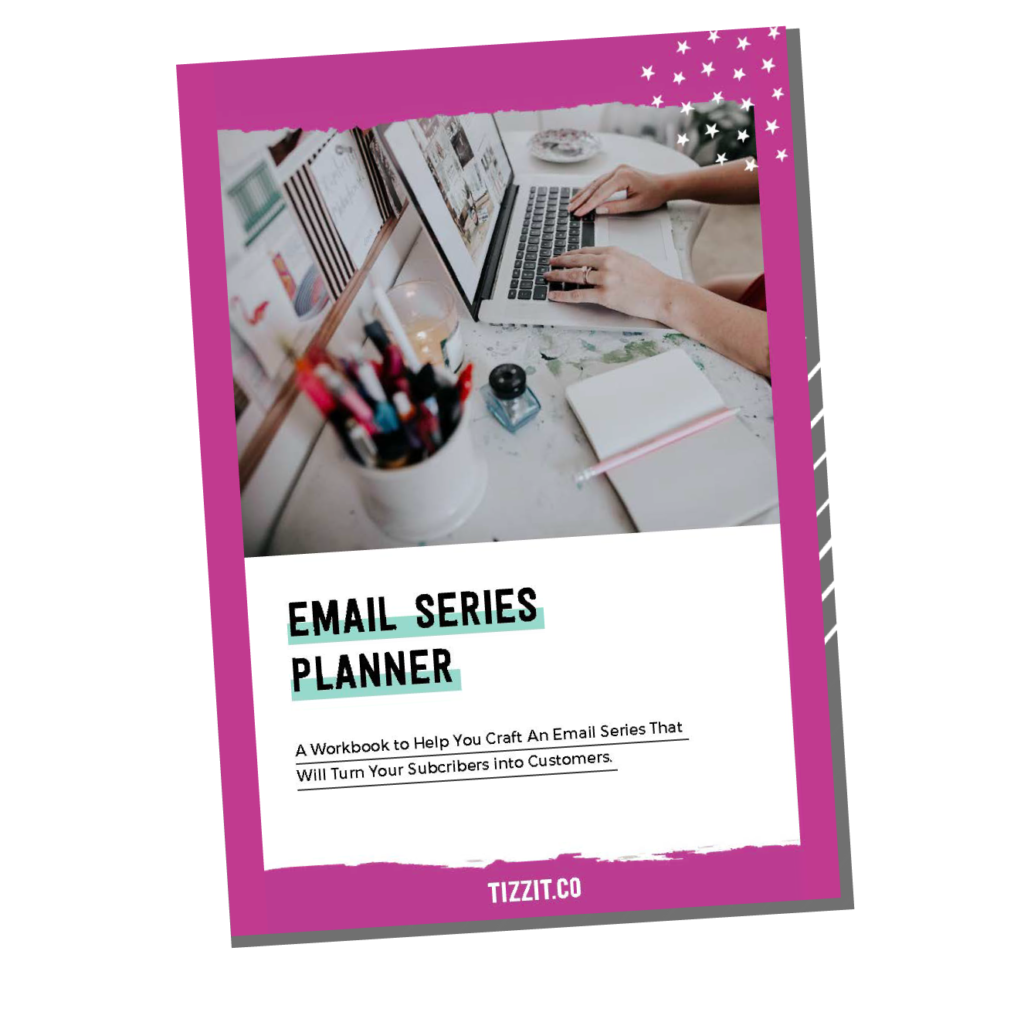
This free email planner will help turn your email subscribers into customers so you can get more sales for your handmade shop!
Etsy is awesome because it showcases your products to all the Etsy visitors that you otherwise might not have been able to reach. BUT, you have very little control over the shopping experience of whoever visits your store, you’re stuck with the Etsy layout, which is the same for all..
On your website, you can craft a very unique shopping experience for your customers – you have complete control of the layout and the process and you can design a shopping experience that truly stands out.
This point comes back to the issue of branding, and the example we talked about above where a customer told their friend “I got my necklace on Etsy!” Etsy doesn’t help you tell your story, or build relationships with your customers and shop visitors.
And one of the unfortunate realities that you have to accept is that if you don’t have your own website and only sell on Etsy, you are considered by most as an “Etsy shop” only.
And you’re not the only fish in the sea.
Another huge advantage that having your own website offers is that you can have a blog.
Blogs aren’t just about providing your customers with information that they value. (Although that’s what they need to do!)
Blogs also:
All of these things result in higher sales, it’s that simple!
I know a lot of makers don’t think it’s necessary because they’re selling physical products; some of them may worry about starting a blog and wonder “what the hell am I going to talk about?”
But the truth is there are plenty of things you can talk about in a blog even if you’re not selling services! Your goal is to write an article that provides value or is interesting to your customers, and there are many ways to do that. I have an article all about blogging for handmade shops that you can read, it talks about how to create a blog that draws in more customers plus gives you ideas of topics your customers will love.
The seventh advantage of having your own website is the HUGE possibilities it creates for advertising.
You can run ads on platforms like Etsy but they don’t compare at all to what you can do when you have your own website.
When you advertise on Etsy the shopper may end up on your product page, but they will still see competitor products and can easily click away and never return to your shop again.
When you advertise and bring people to your website, they are only going to see YOUR products. You can suggest other products, show them complimentary products for what’s in their cart, have a pop-up that offers them an incentive to purchase and get free shipping or a “use now” discount . . . the possibilities are ENDLESS!
Advertising when you have your own website also gives you infinite options for targeting. You can run ads that target people who’ve never heard from you before, people who have already engaged with you on social media, OR you might want to show ads to people who have already purchased from you to try and get them to purchase again – you get to decide who sees each ad that you run.
The money you spend advertising your website has a much higher potential to pay for itself (and then some!).
Having your own website also opens up many more opportunities for integration with platforms like Pinterest or Instagram.
When you have your own website, the integration with those platforms is pretty much guaranteed, vs. with Etsy or other marketplaces there’s either no integration at all, or it’s an integration via Etsy which has very limited capabilities compared to what you could do if you had your own website.
So for example, being on Instagram with your own website is a different thing than being on Instagram with Etsy. You can create catalogs, you have access to shopping features . . . so much more! Same again on Pinterest where you have access to many more features if you have your own website.
The last advantage I want to talk about today is growth.
Now of course you can grow your business on Etsy – I help people do this all day every day – but I can tell you without a shadow of a doubt that opening your own shop gives your business growth and scaling opportunities that you simply can’t get on Etsy, or at least not as easily.
Don’t get me wrong, Etsy has a lot of advantages when you are only getting started. I am not anti-Etsy at all. In fact, I love Etsy and would encourage you to have that door open at all times.
But if you’re serious about your handmade shop, and you want to scale it and have it provide the majority of your income, then at some point, you’ll probably need your own website!
If you’re like “ok how is Etsy really limiting my growth?” I actually have an article that goes into detail about the 4 ways you can’t grow with Etsy so be sure to read that next!
Thanks for reading and until next time, aurevoir!
you might also like…
related articles

If you want to be found in search results on Etsy, you need to optimize your product listing for SEO. And if you want to
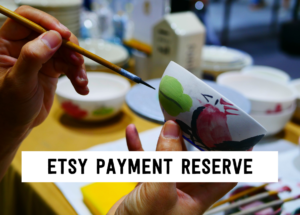
There has been a lot of talk in the Etsy community — and I mean A LOT of talk — about Etsy’s payment account reserve
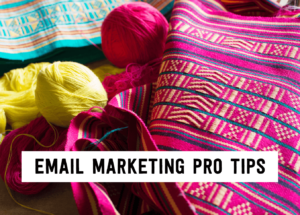
Anyone who knows me knows that I am a HUGE advocate for using email marketing to grow and scale your handmade business. But you may
Sign up below and get instant access to a collection of FREE practical guides, workbooks, and checklists that will help you start, grow and profit from your handmade shop. (without pulling your hair out!).
disclaimer
subscribe to youtube
become a member
get in touch
We acknowledge and give thanks to the Budawang and Yuin people, the Traditional Owners of the land we work and live on. We pay our respects to all Aboriginal and Torres Strait Islander Peoples and elders past, present and emerging.
4-step Maker’s Roadmap System
Library of In-Depth Courses and Training
Live Monthly Coaching Sessions
A Supportive Online Community
close
We hate spam too. Unsubscribe at any time.
close
We hate spam too. Unsubscribe at any time.
close
We hate spam too. Unsubscribe at any time.
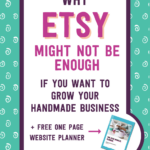
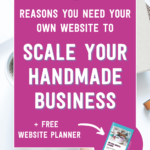

Get Instant Access to
The FULL Resource library

Grab this free
one page website planner

Grab this free
Email series planner
[…] Etsy is great and it’s perfect to start if you don’t want to build your own shop from the start, but you do need a home on the internet. And that means a website on a domain you own, not a space you rent on an online marketplace. Here are 9 reasons why. […]